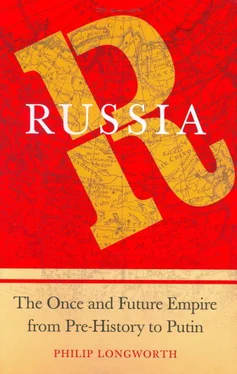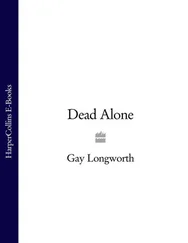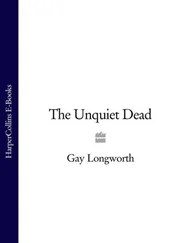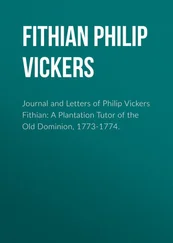They erected a brushwood hovel to shelter in, then built a little church. But Stefan could not stand the solitude, and soon headed off to Moscow. There he entered the Monastery of the Apparition. Its abbot, Aleksei, was to become metropolitan. Stefan himself was to rise to become an abbot and chaplain to the Grand Prince. He was in the world now, if not of it. But Bartholomew remained a hermit in his wilderness, living a life of hard physical toil, prayer and meditation. He was to remain there in solitude for two years. A vision of the Devil he had about this time reflected concerns which were as much political as religious, however, for ‘the evil forces’ appeared before him ‘clothed and hatted in the Lithuanian style’- the style, that is, of the Catholic West. The future saint was a patriot.
Word of the pious hermit spread, and people came to him in the forest bringing little gifts. Three or four even came to join him. He built ‘cells’ for them. But he also began to make occasional forays into the world he had forsaken. On one he persuaded a monk, who was also a priest, to shave his head and rechristen him a monk. His new name was Sergei, or Sergius. More and more young men came to live near Sergius as hermits, until, — reluctantly, so we are told — he agreed to the transformation of the settlement of separate hermitages into a monastery, and to his own installation as its abbot. He was to supervise the community and enforce strict discipline over the monks. The year was 1353–4 and he was thirty-one or thirty-two.
This would hardly have been done without the blessing of Metropolitan Aleksei. The Church had recognized the popularity of Sergius’s initiative, and set out to capture and direct the trend. Sergius was encouraged to organize an expansion of the movement, to found new monasteries further out into the Russian ‘wilderness’. Aside from the benefits of charity and piety that it would bring, putting the energies of so many displaced or undirected young men to productive account turned out to be of strategic economic significance too. So monks were sent out to form communities of their own, and all the time fresh recruits came in wanting the peace of mind and solace that came of prayer and physical labour. A twelve-year-old orphan of Sergius’s brother became a novice, then a monk with the name of Fedor. He was later to found a monastery in Moscow and become archbishop of Rostov. But most of the monks who went out founded monasteries in the ‘wilderness’ of the countryside, not, as convention until that time dictated, at the edge of towns.
Sergius the hermit-turned-organizer became political. In 1358 he was sent to the Prince of Rostov, to the territory where his own family had hailed from, to persuade him to concede in his dispute with Moscow. Seven years later he undertook another mission as peacemaker, between two warring brothers over which of them should be prince of Nizhnii-Novgorod, which controlled an important confluence further down the Volga. He not only blessed Grand Prince Dmitrii before his victory over the Tatars at Kulikovo in 1380, he is reputed to have given him strategic advice, though he was also among those who fled Moscow at the approach of the vengeful Tatar leader Tokhtamysh, who sacked the city two years later. Sergius died in 1392. The site of his first hermit’s cell at Zagorsk, north of Moscow, had already grown to be the Trinity—St Sergius monastic centre. It was to become the administrative centre for the Patriarch of All Russia, and a patriotic symbol for all Russians.
The story of St Sergius helps to explain how Russia relocated itself further to the north in the thirteenth century. It also throws light on how it came to occupy so vast a territory. The policy of princes, particularly Moscow’s prince, of encouraging settlement on unfarmed land in strategic areas was significant in this respect, but the foundation of monasteries in ‘the wilderness’, as Sergius had done, was fundamental to the process.
The Church had become a refuge for peasants who had uprooted themselves from unsafe areas, and a major agency for their resettlement. This helps to explain the popularity of ‘wilderness’ monasteries, many of them founded in distant places where conditions were harsh but which were safe from the Tatars and other human predators. The monastic foundations kept the young men safe and productive. They seem also to have helped to increase population. Monks are, or should be, chaste, of course, but the demographic imperative was satisfied by novices who decided not to take their vows, and by peasants, artisans and service people who attached themselves to monastic communities, creating little suburbs around them.
The new monastic foundations tended to avoid land owned by princes, so people in monasteries’ dependent settlements could live more freely than elsewhere and benefit from privileges and benefits that would not otherwise have been available to them. Yet the monastic colonization movement suited the princes — especially the Prince of Moscow, who made over great swathes of undeveloped territory to the Church, knowing that if it could find peasants to settle on it and make the land productive it would ultimately yield taxes and benefit the state, albeit through the Church. This and the continuing disposition of young Russians to take up the life of pioneers was to have continuing importance for Muscovy’s development, particularly over the following two centuries. The development coincides with what Liubavskii identified as a period of sharp population growth associated with the development of colonization during the half century following the death of Ivan ‘Money-Bag’, 19and monastic communities were founded at an increasing pace from the later thirteenth and fourteenth centuries, with several practical, as well as spiritual, purposes in mind.
Political centres had long attracted monastic foundations. No fewer than sixteen foundations were established around Moscow in the period by grand princes, metropolitans, abbots and the disciples of monastic saints. 20But most were founded further afield — to win more virgin land for the plough, to convert pagan tribespeople, to profit from commercial crossroads, to access natural resources like salt. They were founded for these and a dozen other reasons, but, above all, monasteries were the organizational heart of the ongoing colonization process, whose tempo so accelerated in the fourteenth century. And when, in the mid-1500s, a Western visitor was to marvel at the fact that monasteries owned one-third of all land in the entire country 21it was largely to the legacy of St Sergius that he was pointing — a multifaceted legacy of economic and political as well as spiritual and patriotic significance. 22
Despite all this building, striving and achievement, in 1400 there was no obvious prospect that the Grand Principality of Moscow-Vladimir would develop into a great European power. It controlled only a fraction of the territory inhabited by Russians. Most of what it did control was within 50 to 350 miles of Moscow, though some of this territory was interspersed with the apanages of other princes. True, the Grand Prince took precedence over all other princes, but his titles did not imply authority. Although the apanage (udel’) had originally been a temporary allocation of property from a prince’s inheritance for the upkeep of a family member, since about 1350 apanages had been granted to subordinate princes in perpetuity. Every prince guarded his apanage, his inheritance, and proud, prosperous city states like Pskov, Novgorod and Smolensk only took orders from the Grand Prince if it were in their interest to do so, or unless he compelled them. The Metropolitan, who still had spiritual authority over the Orthodox of Lithuania, had more communicants than the Grand Prince had subjects. Furthermore, the grand princes themselves were less than confident in the future they were trying to build, and were by no means certain that their descendants would inherit their property. A phrase recurring in their wills makes that much plain: ‘if God brings about a change concerning the Tatars’. 23
Читать дальше





![Stephan Orth - Behind Putin's Curtain - Friendships and Misadventures Inside Russia [aka Couchsurfing in Russia]](/books/415210/stephan-orth-behind-putin-s-curtain-friendships-a-thumb.webp)





